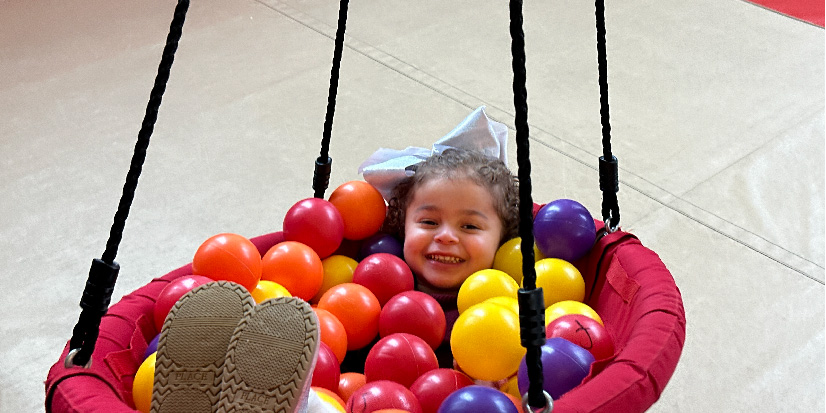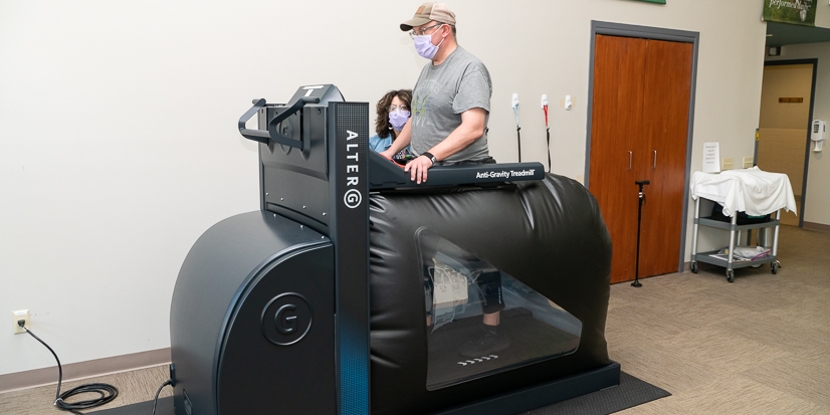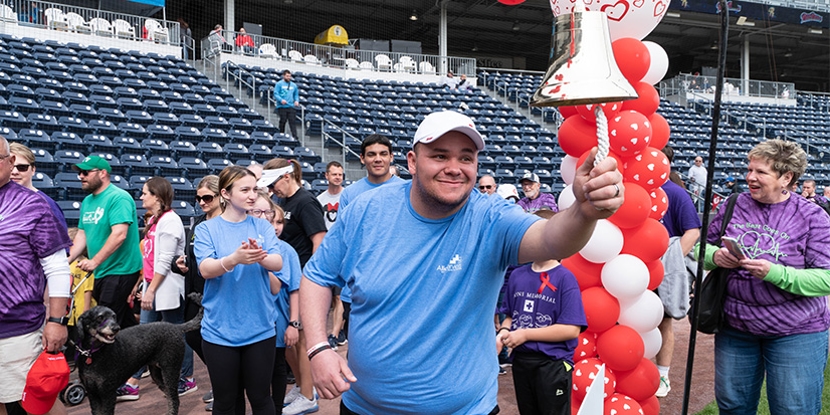Maliyah's Story
- Author: Maliyah K


"We couldn’t even put baby food next to her. The sight of it alone would make her gag, and she would push it away,” noted Ashley D. of Carbondale when we met her daughter, 3-year-old Maliyah, in therapy at Allied Services in Scranton.
While each child develops at a different pace, and there is no strict rule, the transition from liquids to solids typically occurs over the 6- to 12-month age range. Children who are slower to show interest in solid foods, have a strong gag reflex or have immature chewing skills may start eating solid foods a little later. However, Ashely knew it was more than a delay with Maliyah.
“We saw a bunch of specialists, and they did a bunch of tests - once they ruled out anything physical, we saw a genetic specialist, and that’s when they diagnosed her.”
In November of 2021, around the age of 1, Maliyah was diagnosed with a rare genetic disorder known as 15Q11.2 Microdeletion Syndrome. This is a chromosome abnormality in which a tiny piece of genetic material on the long arm of chromosome 15 is missing or deleted. The features of people with a 15q11.2 microdeletion vary widely. For Maliyah, Ashley is told the deletion occurred at the tip of the arm of the chromosome, resulting in speech and feeding delays and food aversions.

“When we first started at Allied Services, Maliyah was only drinking liquid nutrition drinks, and now, at three years old, she’s a completely different kid. Pizza, strawberries, raspberries - she’s willing to touch and try new foods, and even if she doesn’t eat something, she’ll let us put it on the table next to her - look at it and touch it without pushing it away. These are big steps.”
“Her speech has come a long way too. When we first started coming here, she couldn’t even say six words, and now she’s almost speaking in full sentences,” says Ashley. “She counts now, knows her colors, and can mostly express her needs and wants.”
Maliyah meets with her occupational therapist, Karen Kile, MS, OTR/L, and Speech Therapist, Katherine Colosimo, MS, CCC/SLP, once a week - which she lovingly calls “school. "
“She looks forward to coming and thank goodness for places like this because I don’t know what we would have done without Allied. Maliyah has completely changed in her time here. So much so that the genetic specialist we see could not believe the improvements; he said she didn’t even seem like the same child.”
Sustaining Pediatric Services - with YOUR help.
Each year, Allied Services provides:
- 29,784 pediatric therapy appointments.
- 8,524 hours of treatment to children on Medical Assistance.
- Services for 1,200 children in the Wyoming Valley.
Each year, the Pediatric Program in Scranton and Wilkes-Barre provides life-changing care to children, many of whom are underinsured or uninsured. Sustaining costly services and ensuring access to care for children in our area has become increasingly challenging due in part to escalating healthcare expenses and restrictive reimbursement rates. The extraordinary annual expenses incurred by the program place these vital pediatric services at risk in the future.



